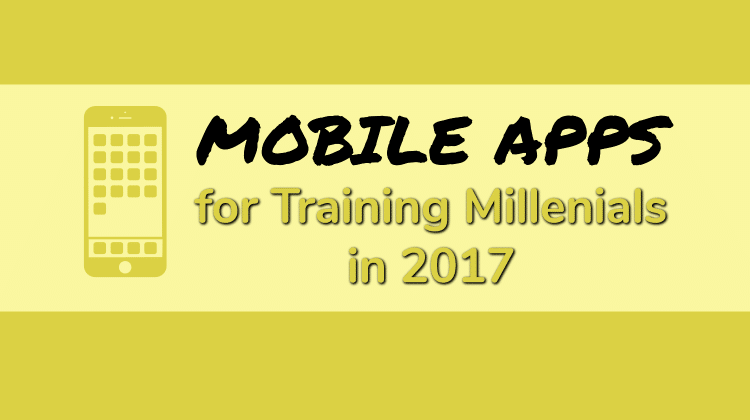
If millennials continue to impact workplace dynamics as profoundly as they have done since they entered the workforce, there is only one thing to do and that is to tailor training in a way that works for them.
That poses some challenges since in many ways, the technology-savvy 19 to 35-year-old worker doesn’t operate quite like any previous generation. Training millenials requires a unique approach.
Millenials Don’t Learn the Same as Previous Generations
They are more collaborative and willing to work in teams and share than the “I’ll do it my way” baby boomer.
They no longer communicate primarily using email, even though your entire management team may still be using it effectively. Instead, they are using instant messaging and live chat devices.
They no longer come to work and leave work at designated times and often, they don’t come into the office at all, even though they are working very hard. This is the mobile generation, and they live and work in a variety of settings, including home offices and different cities.
They aren’t vying for the corner office. They are asking instead to be able to work their preferred shift from their home office all the time, or at least two or three days a week.
Ambition doesn’t drive them like it motivated their parents. Instead, they jealously guard their work-life balance, so that means being content sometimes with part-time or contract work or refusing top positions that will compromise their commitment to raising their children.
In fact, according to the United States Bureau of Labor Statistics, more than 20 million Americans are happy to accept flexible work hours instead of the standard 9 a.m. to 5 p.m. of their parents’ generation.
All of these changing attitudes also affect how they respond to training programs. The ever-moving, shorter-attention-spanned millennial worker prefers to learn in small portions as opposed to mega-doses of facts and theories. Think slider instead of triple-patty burger. Think nugget instead of roast chicken, dressing, vegetables, and gravy.
They also want to be able to access their courses using a multitude of different mobile devices, not just by sitting in front of an office computer. And to them, a video is worth a thousand lectures.
Using Performance Support Tools to Improve Millenial Training
One of the best ways you can tailor your training programs to the millennial worker is to incorporate PSTs or Performance Support Tools.
These give the millennial worker training support at the precise moment he or she needs it. In essence, they can push the panic button and get a flood of reassuring information to help them fix the problem and ease into the next step.
The best-known performance support solutions are mobile apps, and these remain highly popular with the millennial worker. However, there are other forms of PSS devices as well. For example, you can create an interactive PDF out of an ordinary document and include great visuals and tag the content to make it easier to navigate. Keep these PDF files limited to small bits of knowledge, such as the top three tips, cheat sheets, checklists, or simplified procedures and processes.
In an effort to help all learners since the Sesame Street generation adapt to content faster, some companies are incorporating kinetic text and/or animations into their training programs.
Ebooks that can be accessed from tablets and smartphones as well as PCs also can contain references and directions for solving procedures quickly. By bringing life and even music to the text, it becomes more fun and memorable for new employees to absorb. Other PSTs include recorded webinars and videos as well as webcasts and podcasts.
The Key Message for Business Leaders and Trainers
The underlying message is that all information employees need to know must be transferred to them if an organization is going to be successful. Formal classes and long lectures just aren’t the ways of getting the message across when you’re training millenials. Think about how you can get the right information to the right employee using a variety of performance and support tools.
About the Author
Roz Bahrami is a blogger for BoostHQ, an application that enables teams to share links, files, and thoughts on topics.